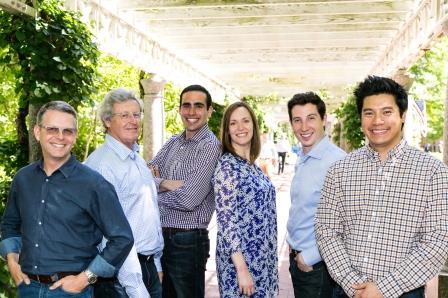Underscore.VC Looks to Align Boston Tech Community With Startups

This has been the spring of new Boston tech venture funds. While most of the area’s traditional players are still going—along with more recent firms—a new crop of investors is trying to change how companies get funded and built in this town.
Venture capitalists are all wrestling with similar issues: how to identify and get closer to promising entrepreneurs; how to bring their networks and expertise to bear on relevant startups to maximize impact; how to better align the investment and support process with founders; and, above all, how to bring more than just money to the table.
Over the next decade, we’ll get to see who wins—and what they’re able to achieve in Boston and beyond.
The latest exhibit is _Underscore.VC, formerly known as Assemble.VC. (The firm says the use of an underscore is a reference to a software coding practice—not a ploy to annoy journalists—but we’re only including the symbol this one time.) Underscore is led by a trio consisting of former North Bridge general partner Michael Skok; ex-Demandware CEO John Pearce; and C.A. Webb, former head of the New England Venture Capital Association.
The Boston-based firm has raised a $ 75 million fund and is now talking about its approach, which sounds pretty ambitious. It will invest in “cloud intelligence” companies (more on that below) at the seed and Series A funding stages. It will make those deals and help build companies by harnessing what it calls “curated cores” of experts—each “core” is pulled from a pool of people in the firm’s network who know the startup business. More than 50 core members are already engaged, the firm says.
The innovation here lies in the structuring. Underscore is organizing its network by sector and functional expertise; there are “cores” for cloud infrastructure, open-source software, commerce and marketplaces, big data and machine learning, sales, and marketing. The people involved include tech executives like Dries Buytaert of Acquia, former Constant Contact CEO Gail Goodman, and Ellen Rubin of ClearSky Data; but they also include some who are deeper in the trenches in areas like design, finance, and marketing.
Some are investors in Underscore’s fund, and some will be investors in a different way. “They can get shares in our companies, out of our pocket,” Skok says, as a reward for spending time working with startups. And some will be allowed to invest in companies along with the main fund. “They get exactly the same terms as us,” Skok says. “We genuinely make them partners of the firm. That’s never been done before.”
What he means is that it hasn’t typically been done in a systematic way. Around town, Accomplice invests alongside individual investors through its Boston Syndicates (BOSS) program. G20 Ventures and Pillar—another new fund unveiled this spring—have tech founders and CEOs as part owners and fund investors. OpenView Labs provides direct support to portfolio companies. And most VC firms (and startups) have structures in place for compensating advisors and mentors.
But Underscore is trying to build something greater, and perhaps harder to grasp right away: a community of experts aligned with both entrepreneurs and the fund through a formal structure. With the purpose of making home-run investments, of course, but also “building companies to become iconic for decades,” says Skok (pictured above on left with the Underscore team).
It’s a common lament that Boston doesn’t have more homegrown anchor tech companies. Now Skok and others are trying to crack the code and create a process for making those types of businesses grow more readily.
Underscore’s structure, he explains, is a “platform for investment in entrepreneurship in Boston and beyond for decades to come.” It includes personal mentorship, but also online technologies for coordinating the company-building process and managing relationships between advisors and startups. (Underscore will also have a separate nonprofit foundation, led by Webb, focused on giving back to the startup community.)
The firm’s first investment is in a North Carolina company called Mautic. The startup is bringing open-source software to the field of marketing automation—think fragmented tools getting integrated together in the cloud. And Underscore is bringing the company to Boston. That’s another component of the firm’s strategy: Underscore is “biased toward Boston,” Skok says, but it’s looking around nationally for opportunities to import talent and companies.
Underscore invested in a $ 600,000 seed round for Mautic (alongside G20 Ventures), and has committed to a multimillion-dollar Series A round, Skok says.
The firm’s sector focus is on “everything connected to the cloud,” Skok says. That includes everything from sensor-related technologies and software for factories, home automation, and healthcare, to infrastructure plays in data storage and databases, to cloud-based software for marketing and commerce. (Think Demandware, which Skok and Pearce helped build, and which was just acquired by Salesforce for $ 2.8 billion.)
Any new venture firm has its work cut out for it. Raising a fund is the easy part, relatively speaking. Underscore has the additional challenge of trying to do something different that involves scores of other partners. The danger would be that the whole thing collapses under its own weight. But it seems like a risk worth taking if it means more entrepreneurs will get support, and more of the tech community can push toward a common goal of building local companies.
The thing about the venture world is, the more things change, the more they stay the same. VCs have to pick winners. Entrepreneurs have to pick the right investors. We’ll see how much impact new approaches like Underscore’s have in the coming years. If they hit the jackpot, Boston and the rest of the world will know.
(24)


